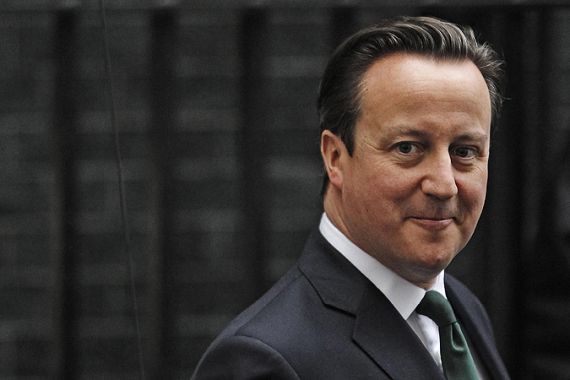UK parties strike deal on new press watchdog
Government came under pressure to create a new “robust” regulatory system in the wake of the phone-hacking scandal.

A deal has been struck between Britain’s main political parties on a new press regulation system in the wake of the phone-hacking scandal.
Public outrage over phone hacking, which went beyond celebrities to include victims of crime and abducted children,
pushed the government to act, but it said it had done so in a way that still protected press freedom.
The compromise agreed by the three main parties late on Monday will establish a new press regulator, introduce fines of up to one million pounds ($1.5m) and oblige newspapers to print prominent apologies where appropriate.
The system will be voluntary, but there will be strong financial incentives to encourage newspapers to opt into it.
Newspapers that refuse to sign up for the voluntary system could face extremely high damages in court cases.
Political leaders said the deal, struck at 2:30am local time (02:30 GMT) after months of negotiations, addressed the abuses laid bare in last year’s Leveson Inquiry into media ethics, without bringing an end to more than three centuries
of press freedom in Britain.
‘Robust press regulation’
“I have today reached cross-party agreement on a royal charter that will help deliver a new system of independent and
robust press regulation in our country,” Prime Minister David Cameron told parliament.
|
“It is right we put in place a new system of press regulation to ensure that such appalling acts can never happen again“ – David Cameron, UK prime minister |
“It is right we put in place a new system of press regulation to ensure that such appalling acts can never happen again.”
The government came under pressure to create a new regulatory system after The Guardian newspaper exposed phone hacking by tabloid papers. The hacking of a murdered schoolgirl’s phone led to a judge-led inquiry which laid bare the scale of the problem.
But concerns that a new system could imperil press freedom delayed agreement, with some press barons threatening to boycott a new regulatory regime and campaigners for tougher regulation accusing Cameron of being in thrall to the press.
Monday’s deal spares Cameron what was shaping up to be an embarrassing political defeat in parliament that would have deepened rifts in his coalition government.
The three parties had been divided over whether a new press regulator should be enshrined in law and over how its members would be chosen. But they reached a compromise after agreeing to enact legislation to ensure the new system cannot be easily altered later.
The charter will not be passed by members of parliament, but will need to be approved at the May meeting of the Queen’s Privy Council – advisers to the Queen, mostly comprising senior politicians.
‘Sad day’
Hacked Off, the campaign group representing victims of media intrusion, said the proposals were “second best” to a full press law but would help prevent a repeat of the scandal.
The new system “will protect the freedom of the press and at the same time, protect the public from the kind of abuses that made the Leveson Inquiry necessary”, said Brian Cathcart, one of the group’s founders.
But free speech campaigners Index on Censorship warned that Monday’s deal spelled a “sad day for press freedom in the UK”.
Chief executive Kirsty Hughes said the notion of a royal charter “undermines the fundamental principle that the press holds politicians to account”.
Newspapers had yet to respond to the proposals, although many warned in Monday’s editions that a new press law would open the door to censorship.
The Sun tabloid, which is owned by Murdoch, published a photograph of Winston Churchill on its front page with the headline “D-Day” and quotes from the wartime leader highlighting the importance of a free press.